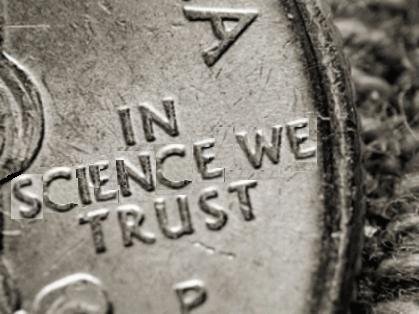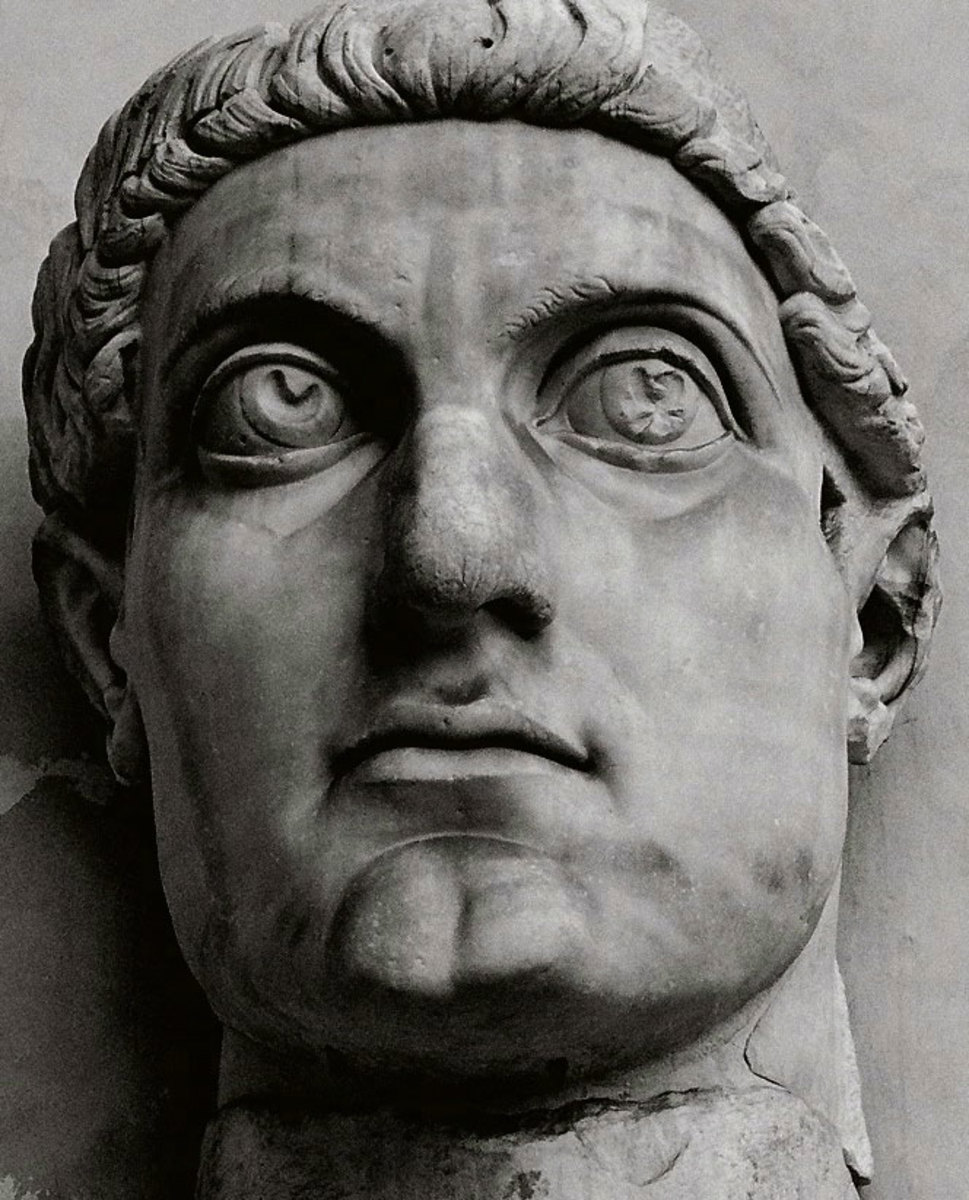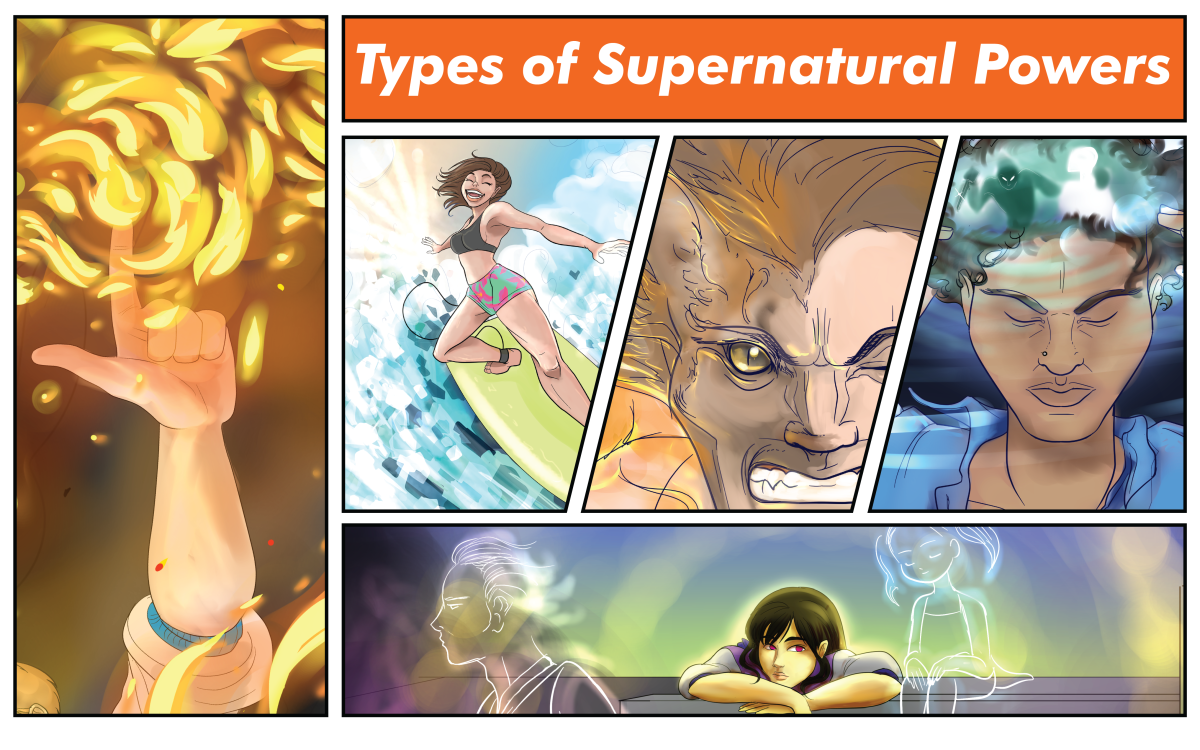In Science We Trust?: Are God and Science Incompatible? (Spoiler Alert ... No.)

"You may call me an agnostic, but I do not share the crusading spirit of the professional atheist whose fervor is mostly due to a painful act of liberation from the fetters of religious indoctrination received in youth. I prefer an attitude of humility corresponding to the weakness of our intellectual understanding of nature and of our own being." - Albert Einstein
A Brief History of Atheism
Western Atheism dates back at least as far as the 5th Century BC in ancient Greece. Much like today, there were some who held strictly materialistic views towards the natural world and rejected the notion of any spiritual elements, like Democritus, others whose views more stemmed from a critical eye towards the religious views of their day, like Diagoras, and those that viewed religion as a "deliberate imposture devised by some cunning man for political ends" as Critias did. Just as the saying goes, there is nothing new under the sun.
Atheism seems to ebb and flow throughout human history along with the availability of information. Beginning with the fall of the western Roman Empire (400 AD) all the way through to the 15th Century, the same century that the printing press was invented, cumulative information gained throughout history wasn't readily available. The masses were generally left to depend on the interpretations of the few who had access. Atheism re-surged in the later portion of the Age of Enlightenment as information became more and more accessible.
Humans are a curious species. We want to know how things work. We want to question established ideas and beliefs. We're just built that way. Atheism is a natural product of that.
So it's not surprising in this age of information, especially in western civilization where individual rights and liberties are protected, for there to be a swelling of what some refer to as the New Atheist mentality. New Atheism is a term used to describe those who feel religion is a human trait that holds humanity back and therefore cannot be tolerated, and who actively criticize and argue against it using rational arguments in an attempt to expose religious belief for what they believe it really is.
Many in this camp hold the view that science and the idea of any supernatural being cannot coexist. That modern scientific discovery only confirms that the natural world needs no supreme being as its creator, and that anyone who thinks otherwise is ignorant, blinded by indoctrination. Obviously, level of scientific understanding in no way addresses whether or not there is a God...
"In view of such harmony in the cosmos which I, with my limited human mind, am able to recognize, there are yet people who say there is no God. But what really makes me angry is that they quote me for the support of such views." - Albert Einstein
God and science are not mutually exclusive. In fact, they are very much interrelated. And when understood as such, one can inform the other, and vice versa.
Christians in this Modern Age of Science and Information
When faced with scientific facts that seem to contradict the bible, the majority of Christians in this day and age react in one of two ways. They either reject science as a deliberate attempt to debunk God, or they become all too willing to demote those passages in the bible that appear to contradict modern understanding to metaphorical stories that are not so much grounded in actual history, but were more formulated to convey ideas and messages through imaginative storytelling.

Saint Augustine
At the beginning of On The Origin of Species, Charles Darwin included the following quote from Sir Francis Bacon, pioneer of the scientific method and considered by many to be the father of Empiricism...
"Let no man think or maintain that a man can search too far or be too well studied in the book of God's word or in the book of God's works, but rather let man endeavor an endless progress or proficience in both."
In this quote Bacon is echoing the sentiments of Saint Augustine, a 4th century Latin philosopher and theologian recognized by Catholicism as a Doctor of the Church and considered by many Protestants to be one of the theological fathers of Reformation.
St. Augustine believed God reveals himself to us through two sources: The Book of Nature (the physical world) and The Book of Scripture (the bible). He believed that if at any time the two appear to conflict in any way, then it's human interpretation that is flawed.
"Interpretation of biblical passages must be informed by the current state of demonstrable knowledge" - St. Augustine
Saint Augustine wrote on many topics. In one in particular, 'De Genesi ad litteram', or 'The Literal Interpretation of Genesis', Augustine attempted to interpret those early chapters of Genesis that have been a mystery for ages, even throughout "biblical times" they were already ancient history. Before getting into his literal interpretation, he prefaced it by stating ....
"It not infrequently happens that something about the earth, about the sky, about other elements of this world, about the motion and rotation or even the magnitude and distances of the stars, about definite eclipses of the sun and moon, about the passage of years and seasons, about the nature of animals, of fruits, of stones, and of other such things, may be known with the greatest certainty by reasoning or by experience, even by one who is not a Christian.
It is too disgraceful and ruinous, though, and greatly to be avoided, that he [the non-Christian] should hear a Christian speaking so idiotically on these matters, and as if in accord with Christian writings, that he might say that he could scarcely keep from laughing when he saw how totally in error they are."
— De Genesi ad literam 1:19–20, Chapt. 19 [408]
(http://en.wikipedia.org/wiki/Saint_Augustine)
Augustine's interpretation was based on the best understanding of his time, which was obviously nowhere near the level of understanding we have today. In fact, speaking on the creation account specifically, Augustine acknowledges that interpretation is difficult, and says that we should be willing to change our mind about it as new information becomes available.
This is something I whole-heartedly agree with ...
_________________________________________________________________
'God Created Evolution' Hubs
- Genesis Creation Story is Scientifically Accurate
Reading the Genesis creation account in the context of the modern scientific understanding of the earth's geological formation and the evolution of life proves to be incredibly accurate and insightful. - Adam was not the first human, for the bible tells us so
Genesis makes it clear that Adam was not the first human in existence and that the flood was not global. Correcting these misconceptions takes pre-flood Genesis out of the realm of mythology and grounds it in known history. - Cain, His City, and His Descendants
Cain was only one of three humans on the Earth according to traditional interpretation, yet there were 'others' he feared would harm him, he built a city, and his descendants introduced skills that existed beyond the flood. - The Mysterious Unnamed Characters of Pre-Flood Genesis
Some of the most debated mysteries in all the bible are found in the first few chapters of Genesis. This hub discusses unnamed characters who are casually alluded to, but never explained. Or are they?
_________________________________________________________________
Many of the Founders of Modern Science Were Themselves Christians
Copernicus, Kepler, Galileo, Bacon, Pascal, Descartes, Boyle, Newton, Pasteur, and Kelvin were all Christians. And that's just a partial list. Most of these forefathers of modern science recognized science as the study of the natural world, understanding that it's an intense study of God's creation.
Romans 1:20 - For since the creation of the world God’s invisible qualities—his eternal power and divine nature—have been clearly seen, being understood from what has been made, so that people are without excuse.
Darwin was a Christian in the beginning, while his wife Emma remained a christian throughout her life. And even after being troubled by what he viewed as cruelty in the natural world that he struggled to reconcile with the creator God of love as he understood Him, even after losing his daughter and his wife, he would not deny God's existence. When asked he stated his view more fit the views of an agnostic. If he were to see how his name and his work is being used today, that he has been idealized as a kind of atheist poster child, I imagine he would be rather upset about it.
The 'Naturalist' Disposition of Science
The 'naturalist' approach to science, an approach that basically presupposes a natural, observable cause for everything that can be examined, is merely a necessity where science is concerned. It is in no way a dismissal of God. As stated above, many of the pioneers of the scientific method were themselves believers.
Basically, you can not allow for miracles and divine intervention in a controlled test environment as you cannot account for infinite possibilities and determine anything with certainty. Without this approach, every possible outcome could be explained away as God's capability to override the natural order and make something seemingly impossible possible.
Besides, why would God need to override His own creation? The natural world is His making. His design. To count any occurrence that does not yet have an acceptable causal explanation as a miracle performed by God only closes a subject that could potentially lead to a better understanding if it weren't so quickly dismissed as divine intervention.
“By any reasonable analysis, evolution does nothing to distance or to weaken the power of God. We already know that we live in a world of natural causes, explicable by the workings of natural law. All that evolution does is to extend the workings of these natural laws to the novelty of life and to its changes over time. A God who presides over an evolutionary process is not an impotent, passive observer. Rather, He is one whose genius fashioned a fruitful world in which the process of continuing creation is woven into the fabric of matter itself. He retains the freedom to act, to reveal Himself to His creatures, to inspire, and to teach. He is the master of chance and time, whose actions, both powerful and subtle, respect the independence of His creation and give human beings the genuine freedom to accept or reject His love.”
- Ken Miller, Cell Biologist/Brown University Professor/Christian, from his book 'Finding Darwin's God'
Miracles documented in the bible were only ever for the purpose of illustrating to free willed humans His control over the natural world. Everything else has progressed just as He designed it to. Only through the combination of scientific discovery and scripture can we even begin to grasp just how powerful and perfect He truly is.
Conclusion
We live in an incredible age. St. Augustine would have a field day with the depth of knowledge our modern 'book of nature' has. In every imaginable field of study there are teams of experts who dedicate their lives to figuring out how everything works. This combined with the wide availability of information and communication has led to an even greater collective understanding, accessible to a large part of the population.
Just as Augustine believed, as well as many early theologians and scientists, much can be learned about God's nature through His creation. Modern scientific understanding has illuminated errors in how people have traditionally interpreted the bible, but it has not 'debunked' the bible or the existence of God as many would like us to believe.
Science is the study of the natural world. Matter and energy. Assuming the universe came into being as described by the Big Bang Theory, science is only able to detect what exists from the big bang forward. If God is the creator of the universe, He exists apart from it. Proving whether or not God exists is simply out of the jurisdiction of the natural sciences. God's will appears as 'natural law' through the eyes of science.
But, modern science used in tandem with the bible proves to be an incredibly insightful companion guide that can teach more about God's nature than has ever been known before. Spirituality is in the end an internal reconciliation. Inward reconciliation and introspection should not be shackled by the material world's limitations because the mind is not material. You can use knowledge of the material world to establish certain truths, and to guide introspection, but we should also put more trust in the intuition that has gotten us this far. The same intuition that informed our ancestors before the level of knowledge we've since achieved, and that helped us in gaining that increased knowledge. Belief in a higher power of some kind has been all but absolute throughout human history, with the only real exception being those who through learned knowledge of the external reasoned an understanding that did not include divinity. If we have learned anything through scientific discovery, it's that we've still got a lot to learn. To impose limitations, based purely on our limited knowledge of the material world, on our attempts to better understand ourselves through introspection is to ignore the fundamental elements that made us who we are. Science can establish provable/observable/objective truths about the external world we perceive through our senses, but where the mind is concerned there is only subjective understanding. True, you can go astray, and many have. But as long as you don't impose limits, and leave your mind open to alter its understanding when better truths are established, you're then able to use everything at your disposal to achieve better understanding.








